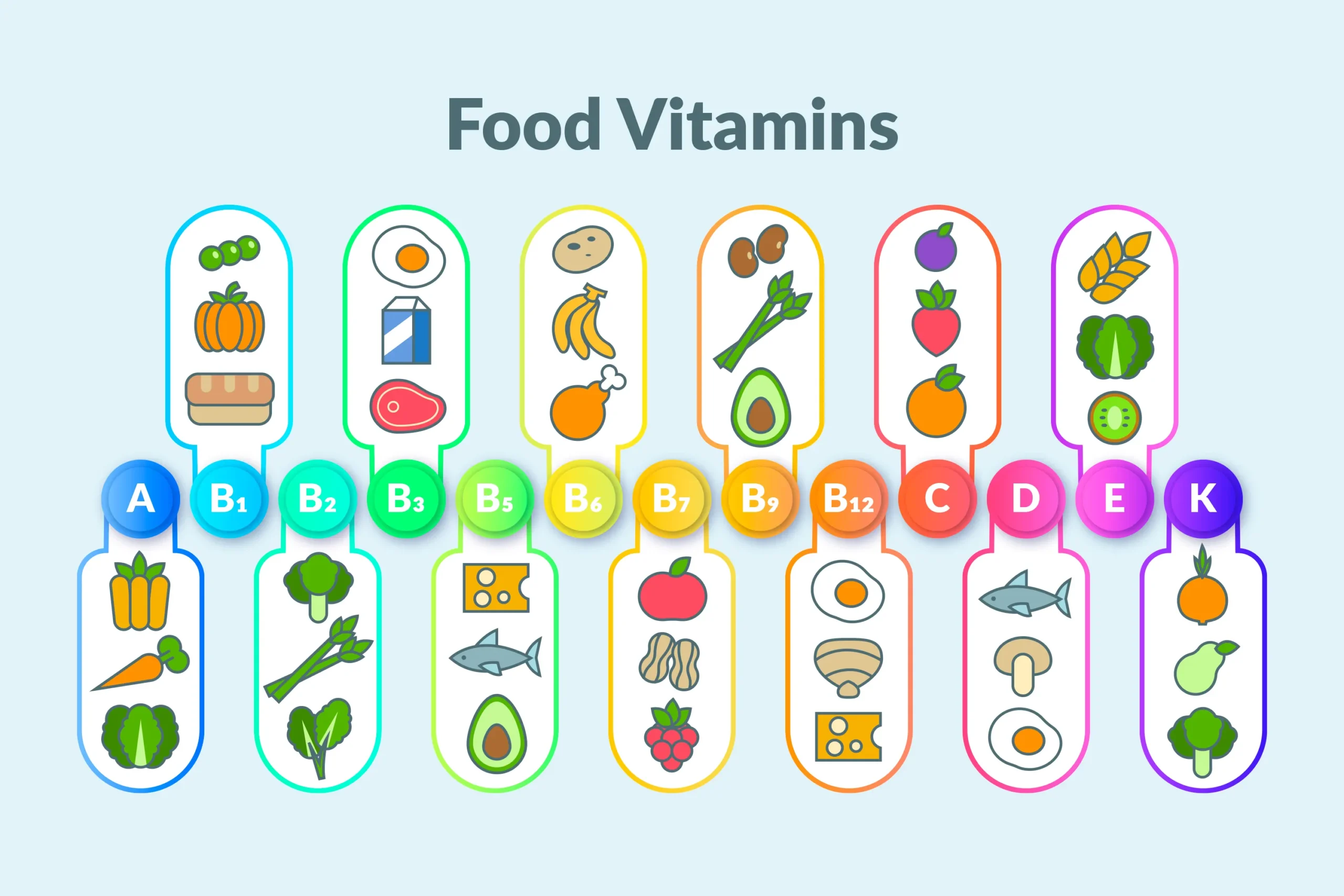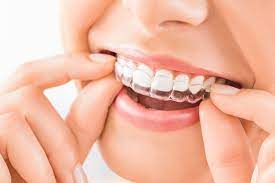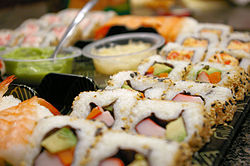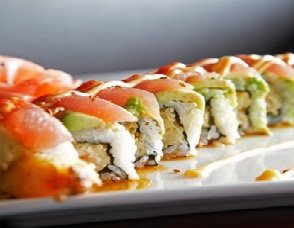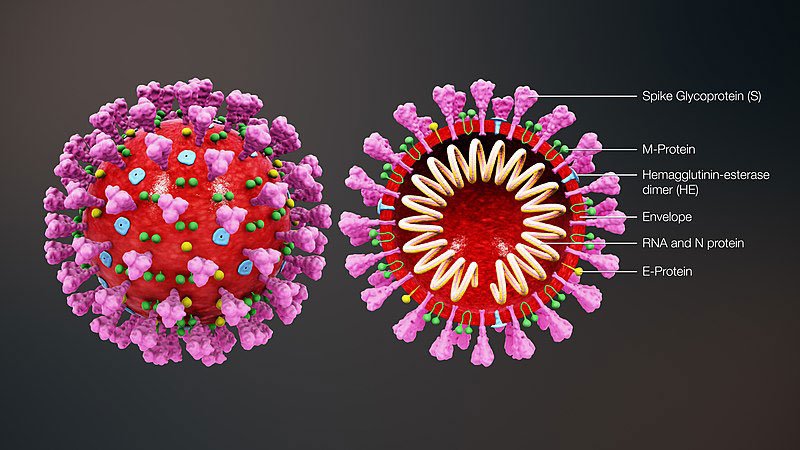Sushi and Weight Loss
The Health Benefits that Sushi Has to Offer
Sushi has a lot of health benefits. If you are fond of eating sushi then you should definitely check out the health benefits and nutrition that sushi has to offer. Most types of sushi are low in saturated fats and high in protein. Despite the fact that thick sushi rolls are packed with carbohydrates, there are still some types of sushi that has negligible amounts of carbohydrate content like the nigiri sushi.

Eating sushi actually promotes a healthy cardiovascular system as one of the main ingredients of sushi would be fish and this contains high amounts of fish oil. When you are very particular with this health benefit then it would help out if you consider the fish ingredients of the sushi that you eat. Shiny fishes or otherwise known as ‘hikarimono’ which would include mackerel, sardine and Pacific Saury contains high amounts of EPA and DHA omega 3 fats. Moreover, this type of fishes also contains high amounts of Vitamin E which is a good antioxidant to help you fight against free radicals in the body that can cause diseases like cancer.
Recommended: Unique New Sushi Rolls
Sushi also promotes cell metabolism as this has vinegar. Studies show that people who use vinegar frequently are actually found to have less body fat compared to those people who use vinegar minimally. However, not all people are advised to eat sushi as there are health considerations that must be considered. People with type I or II diabetes should eating sushi yet they can eat sashimi if they wish. People with high blood pressure should also avoid excessive use of soy sauce with sushi as this can aggravate their current condition.
Sushi Nutrition Facts
Even though sushi is a simple delicacy, this is actually a balanced diet. This is composed of lean protein, carbohydrates, less saturated fat and more on saturated fats. If you are particular with the nutritional facts of sushi then learning more about what you eat and the amount that you eat will definitely help you determine this.Even though sushi is a simple delicacy, this is actually a balanced diet. This is composed of lean protein, carbohydrates, less saturated fat and more on saturated fats. If you are particular with the nutritional facts of sushi then learning more about what you eat and the amount that you eat will definitely help you determine this.
The carbohydrate content of sushi depends on the amount of rice that is incorporated in the sushi preparation. The rice portion of a sushi can contain 20 to 30 calories or perhaps 3 to5 grams of carbohydrates. The 100 ml sushi rice vinegar will contain approximately 15 grams of sugar which is roughly 60 calories and 10 grams of salt. For a whole cup of rice, approximately 30 ml of rice vinegar is used. A cup of rice will already yield 25 pieces of sushi. One sushi should contain around 0.7 calories from sugar or perhaps 0.2 grams of carbohydrates. Moreover, this should also contain 0.47 grams of sodium which is 2% of the daily recommended value.
The protein and fat content of sushi will vary depending on the type of ingredients that are used. Some examples of nutritional content of the fish ingredients of
sushi are the following:
- Tuna will contain around 7 calories and 1.1 grams of protein. This will also contain 0.1 grams of unsaturated fat and 0.06 grams of saturated fat.• Tuna will contain around 7 calories and 1.1 grams of protein. This will also contain 0.1 grams of unsaturated fat and 0.06 grams of saturated fat.
- Salmon, on the other hand, will contain the same calorie count which is around 7 calories. This type of fish will contain 1 gram of protein. Moreover, this will also contain 0.4 grams of unsaturated fat and 0.1 grams of saturated fat.
- Halibut is another fish ingredient that can be used in sushi. This will contain 4 calories with 1 gram of protein. This type of ingredient will contain 0.1 grams of unsaturated fat and 0.02 grams of saturated fat.
A rough caloric average of a single sushi will be around 35 calories. This will also contain around 1 gram of protein, 4 grams of carbohydrates, 0.05 grams of sodium 0.03 grams of unsaturated fat as well as 0.3 grams of unsaturated fat. You can multiply this by the number of sushi that you eat. Despite the good nutritional value of sushi, this meal still lack fiber. However, there are a lot of appetizers that are prepared which are actually vegetables to compensate for the lack of fiber.
Sushi and Weight Loss
Sushi diet has a lot of benefits and one of this is weight loss over a period of time. Depending on the type of sushi and the amount you eat, you can definitely lose weight over a period of time. Sushi diet does not mean that you have to eat sushi only for several days.
Sushi contains carbohydrates and pure protein with omega 3 oils. This will contain mostly proteins with less carbohydrates and good fats to lower your cholesterol. This is a good ratio to consider when you are dieting. Most body builders have the same ratio as this that can help them reduce significant amounts of body fat. Weight gain can occur from an imbalance of carbohydrates, protein as well as unhealthy fat. In many cases, people tend to eat foods that contain too much carbohydrates and unsaturated fats compared to eating foods with high protein content.
Aside from being a balanced meal, sushi also contains ingredients that promote weight loss. These ingredients are vinegar and citrus which promote fat loss during metabolism. Sushi rice is primed with rice vinegar and some fish ingredients are eaten with soy citrus sauce. Moreover, sushi also contains gari which aid in digestion so that the body can use up what you have eaten. In addition to this, green tea is also served with sushi. Green tea has many great benefits that can help burn fat.
Sushi really does have a lot of health benefits. Sushi is a balanced meal that promotes weight loss and healthy eating. There are many types of sushi that are available for you and you have to check on the ingredients of the sushi that you eat to be able to determine the caloric count of the sushi as well as the nutritional contents. Not only that sushi is a very delectable Japanese cuisine, it is also contain lots of health benefits.

